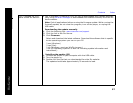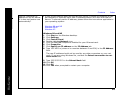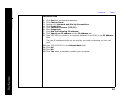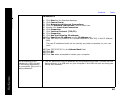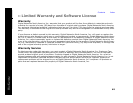
Contents Index
62
Rio Karma
Firmware
Firmware is the permanent read-only software that is installed on the player. Like software it can be updated, but
unlike software it can never be deleted from the player.
FLAC
FLAC stands for Free Lossless Audio Codec. FLAC is a lossless digital audio format, referring to the fact that none
of the audio signal is discarded or “lost”. FLAC files decode exactly the same as the digital source material from
which the FLAC file was encoded. (MP3, Ogg Vorbis, and WMA all discard inaudible parts of the signal.) Lossless
compression comes at a price: FLAC gets much poorer compression ratios than the other codecs. In practical
terms, FLAC files are usually four to eight times larger than typical MP3, Ogg Vorbis, or WMA files.
Gain
Gain is the extent to which an audio signal, or a limited frequency range of an audio signal, is made louder or qui-
eter by a filter such as an equalizer. Gain adjustments boost or reduce sounds to produce a more desirable audio
output.
ID3 Tag
The ID3 tag is the part of the encoded MP3 or WMA file that contains information about the digital audio file such
as song title, artist, album title, encoding bitrate, track time duration, and so on. ID3 tag information is displayed
on the Album/Track title line on the player’s LCD.
IntroScan
When in Introscan mode, the Rio Karma will play the first ten seconds of a track and then skip to the next track in
the running order and repeat, playing ten seconds, then skipping to the next track. The IntroScan playback mode
can only be accessed by moving and holding the RioStick in the up (PLAY/PAUSE) position.
MP3
MP3 is short for Moving Pictures Experts Group Audio Layer 3. MP3 is the most well known compressed digital
audio file format. This format allows for near “CD quality” sound, but at a fraction of the size of normal audio files.
MP3 conversion of an audio track from CD-ROM reduces the file size by approximately a 12:1 ratio with virtually no
perceptible loss in quality. MP3 compression removes the redundant and irrelevant parts of a sound signal that the
human ear doesn't hear. This digital sound encoding and compression process was developed by the Fraunhofer
Institute for Integrated Circuits and Thomson Multimedia. The MP3 encoding process is well suited for the transfer
of high quality audio files with small file size over the Internet.






